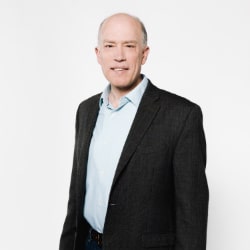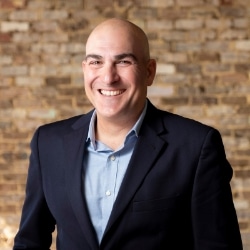Make your business a Millennial magnet
For years, they’ve been mocked, scolded or dismissed by older generations and the media. But in 2019, Millennials – commonly considered those born between 1981 and 1996 – have ascended. That’s because, in the United States and many other developed countries, there will soon be more Millennials than Baby Boomers, making them the largest adult demographic.
It’s also because Millennials – currently aged between 23 and 38 years old – are entering what demographers consider the most important spending period of consumers’ lives: when they purchase real estate, establish families and acquire other forms of debt that they pay off later in life.
For brands and retailers, simply considering Millennials’ needs is no longer sufficient: they must now craft product and selling strategies that prioritise Millennials above all other demographics. Paul Polman, former Unilever chief executive, told the Financial Times recently: “My biggest fear for this company, of which I have very few, is that we lose the connection with Millennials. Very selfishly, because then obviously we don’t have future consumers anymore.”
For natural health retailers, the ascension of the Millennial generation is incredibly exciting. That’s because Millennials – who have come of age in the era of climate change and global financial disruption – are naturally receptive to many of the natural health sector’s long-held beliefs.
“Millennials represent an enormous opportunity for the natural products industry, not only because of their sheer numbers, but also because they’re aligned with so many of our values: environmental sustainability, ethical sourcing and organics,” says Bob Burke, a globally renowned health and specialty products expert and the founder of Natural Products Consulting. “Millennials in general are also notably more tuned into the social missions of companies than other groups.”

Bob Burke, Natural Products Consulting, will be speaking at the Naturally Good Business Summit and expo seminar program 2019.
For retailers, that means stocking products that not only taste good or offer health benefits, but that also leave minimal impact on the environment and do not contribute to inequality around the world. “These concepts are now the norm for this generation,” says Tim Sperry, president and owner of The Tim Sperry Group, a natural products consulting firm based in the US.
“While my generation [Boomers] pioneered organics, the Millennials have come to expect that more and more of their food is organic. They know more about how food is raised than my generation did. They expect products to be sustainable and for the packaging to be minimal and more ecological. The industry needs to be heading in this direction.”

Tim Sperry, will also be speaking at the Naturally Good Business Summit and expo seminars in 2019.
Focusing on smaller companies with clearly articulated social justice missions is a smart move: large brands in the US lost nearly three percentage points of market share in the US between 2011 and 2016, according to Boston Consulting Group, a shift attributed largely to Millennials.
Emmanuel Faber, chief executive of Danone, echoed these sentiments in 2018. “Consumers are looking to ‘pierce the corporate veil’ in our industry and to look at what’s behind the brand,” he said. “The guys responsible for this are the Millennials. They want committed brands with authentic products. Natural, simpler, more local and, if possible small, as small as you can.”
Millennials also demonstrate more willingness than Boomers to explore new product ranges and categories in the natural products space, according to experts. “They tend to be more on the leading edge of trends around the plant-based diet, including non-dairy beverages and meatless products, special diets like paleo and keto, gut health and emerging categories like kombucha, drinking vinegars, cold-brewed coffee, bone broth and collagen,” says Burke. That means natural product retailers can start leaning into these emerging spaces without fear.
Peter Barraket, who runs the strategic advisory business Natural Core, says these two trends – supporting socially-responsible manufacturers and preferencing small and/or local companies – can both be traced back to the Millennials’ desire for trust in a world that they consider to be inherently uncertain and unstable. “That’s the biggest thing: Millennials have got to trust that it’s an authentic product,” he says.
For Millennials, trust is gained through clearly articulated information and an ability to ‘pierce the veil’, not through omnipresent branding or relentless advertising.
“They don’t fall for ‘Big Food’ branding, like Kraft and Smith’s Chips and Coca-Cola: they just know that it’s full of sugar and full of artificial ingredients,” Barraket says by way of example. “And, if it’s organic, it’s got to be proper organic, not fake organic. They just don’t believe that a green Coke is somehow sugar free: they just don’t believe it.”

Peter Barraket, Natural Core
The phenomenal rise in recent years of organic and healthy-alternative brands such as Halo Top (ice-cream), Kind bars (muesli bars) and independently made kombucha clearly demonstrate how Millennials are already shifting consumer outcomes. And there is evidence that Millennials are earning comparatively more than Gen Xs and Boomers did at the same age, suggesting they will become even more dominant in the years ahead.
But experts advise natural product retailers not to put all their eggs in the Millennial basket just yet. “While the Millennial is a significant player in the market, it is going to become more and more important to track them as they age,” says Sperry. “Are they maintaining these same buying patterns as they start families?”
Burke reminds us: “Baby Boomers are still a meaningful and significant segment because of their numbers, their buying power, their desire for healthy and active ageing and their interest in self-care. Remember: more than a few are ageing hippies who are not without some social consciousness themselves!”
Bob, Tim & Peter will all be speaking at the Business Summit on Friday 31 May 2019. Bob will also be speaking at the Naturally Good seminar program from 2-3 June 2019.
-
Get your FREE ticket
- REGISTER FOR FREE
